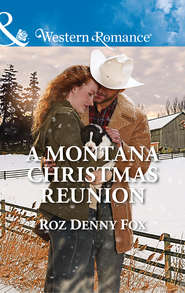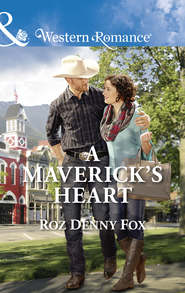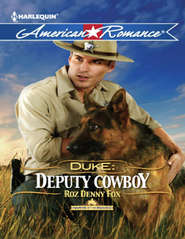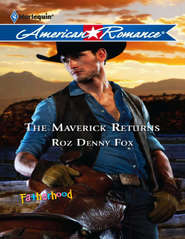По всем вопросам обращайтесь на: info@litportal.ru
(©) 2003-2024.
✖
More Than a Memory
Автор
Год написания книги
2018
Настройки чтения
Размер шрифта
Высота строк
Поля
“Right. You’re right. Our folks always treated Colleen like a second daughter. Like they treat my wife and Galen’s and now your fiancée. I can’t think of any excuse that’s strong enough for us to forgive how badly she hurt Garret. Go, do what you have to, Sean. I’ll see if it’s really Colleen at the bar, and not some figment of Garret’s imagination.” Brian returned to the pub’s kitchen where he grabbed a broom, bucket and mop and went to tackle his brother’s mess.
A FEW TIMES on the drive home Garret considered turning back. Part of him knew Brian was right in saying he’d come a long way this past year. He was also right that Garret shouldn’t let Colleen send him into a tailspin again. But he couldn’t help it.
There was the note she’d left with his dad shortly after he accompanied his mom on the trip to Ireland. In it she said she was going to Boston with her parents for a few days—strictly to pacify her mother. She said her mom had arranged for an audition at some highbrow music conservatory. But Colleen assured Garret that she had no intention of attending anymusic school so far away.
Today she’d looked spiffy enough to have become one of the highbrows. What the hell had happened to her resolve?
Garret pulled into his driveway but he didn’t get out. He gripped the steering wheel with both hands. A few weeks before Garret, and his mom, Clare, arrived home from three months abroad, the top real estate agent in White Oak Valley sold the Drake house, which sat next to the Logan family homestead. The story that circulated and had been accepted as truth was that Harvey Bolton had been contacted by a grief-stricken Sharon Drake and told to sell. Well, jeez, Garret had been grief stricken, too. And inconsolable, even though his family had banded together to try to ease his pain. Dropping his head briefly on the steering wheel between his two clenched hands, he realized the story could only have been a ruse.
He beat his palms on the wheel and released a strangled cry. Then he grabbed the bottle of Bushmills and made his way into the house he and Colleen had planned together.
JO HAD BEEN SHAKEN by the angry words flung at her by the bartender. She was half-afraid to meet him outside as he suggested. The pub was surrounded by forest. No one except a kid on a bicycle knew she’d come here looking for Garret Logan. How could she trust that surly, muscular bartender not to hurt her?
Still, those people might be her only lead, her only way to sort out the past. She was unnerved by his behavior, but even more so by her own uncharacteristic request for sarsaparilla.
As Jo hovered near the bar, undecided about leaving or staying in case the man came back, she sensed a bigger wall of hostility surrounding a second man who’d emerged from the pub’s back room. He carried a broom, a mop and a bucket. After pausing to check if the two guys seated at the bar needed anything else, he bent to the chore of cleaning up the mess left by the first bartender. If this was the Brian the other man had mentioned, he wasn’t familiar to her either.
The two men, both quite good-looking with dark hair and coffee-brown eyes, shared a familial resemblance. Plus, they were the rudest people Jo had ever encountered. Her ego still smarted from the first man saying they had a score to settle. The only scores she knew anything about were musical scores.
She supposed she could’ve explained her situation. She could’ve admitted her past was a blank. But a psychologist she’d briefly seen had cautioned her to be careful whom she confided in before she knew just how the person was linked to her past. The therapist said sometimes too much honesty allowed unscrupulous people to take advantage. She cited cases where men—especially—had claimed past romantic relationships with fugue victims, then cleaned out their bank accounts. And her mother, too, had urged Jo to be wary because she was so vulnerable.
Not that Jo had money. What she did have, apparently, was some kind of history connecting her to this town. Already she’d experienced the anxiety that accompanied flashes of déjà vu. And, yes, she definitely felt vulnerable. The bartender had also called her Colleen. Jo didn’t know what to believe.
Glancing around the pub, she felt as though she’d seen the paintings and photographs hanging on thewalls before. It was creepy, like walking into a stranger’s dream.
Still unsure if she should wait for the first bartender to return, Jo crossed to a doorway shielded by strings of green crystal beads. She parted the tinkling strands and peered into a vacant room—and was flooded with images of a wedding. Or perhaps bits and pieces of several wedding receptions. The mental pictures were so clear they made her gasp and blink.
She started to step into the room, but was blocked by a man’s arm. Jo fought the barrier momentarily, because she didn’t want to lose the moment. The blip—the wedding scene—was accompanied by raucous laughter, clinking glassware and the sounds of loud fiddle music.
Not Jo’s kind of music—not Tchaikovsky, Schumann or Beethoven—but folk songs. How was it she recognized the bluegrass sounds when her mother refused to let anything other than classical music be played in their home?
Checking her forward motion, Jo dropped her chin and gripped her head. Briefly, she recalled one of her hospital nurses bringing her a CD of country instrumentals. Her mother had pitched a fit and snapped the CD in half. “Trash,” Sharon spat, as she tossed the broken pieces in a wastebasket.
“This room is off-limits,” the man growled. “Haven’t you hurt Garret enough? He’s finally getting his life back. I can’t control who comes and goes in this town, but it is my call as to who gets served in Logan’s.” For a brief moment he relaxed his gruff stance. “Forget whatever’s brought you back to town, Colleen. Believe me, there’s nothing left for you here.”
Overcome by unexplained dizziness made worse by the man’s intense brown gaze, Jo decided she’d had quite enough Southern hospitality for one day. “I wasn’t planning on stealing the family jewels,” she said, gritting her teeth. “I came here hoping to speak to Garret Logan. But it’s clear you people have never learned basic good manners.” Not waiting to see what, if any, effect her outburst had, she turned and stalked off. She couldn’t get out of the building fast enough.
Outside in the fresh air it took several minutes to calm her nerves. The odd moment she experienced in the pub could only be a glimpse into her past. Mildred at the café and both bartenders seemed sure they knew her. They called her Colleen, the name in the highschool yearbooks and on the award certificates she’d found in the cedar box. Her father’s cedar box.
It was frightening to think about who she might have been. What could she have done to spark such negative reactions?
Jo’s inclination was to climb in her car and get out of this burg where it was abundantly clear she wasn’t wanted. It would be easy to take Jerrold’s advice and leave buried what her mother had taken such pains to hide.
But that would be cowardly. Jo had fought back from the brink of death, the doctors said. Whatever she was, she wasn’t a coward.
And yet her hand shook as she switched on the ignition. Probably because of the second bartender’s barely veiled threat that there was nothing for her in White Oak Valley. It was disturbing to think she might have committed a sin here so awful that after a long absence she’d still be persona non grata.
Slowly releasing the brake, Jo cast a final look at the pub before stepping on the gas. Was she crazy for wanting explanations?
No! Anyone who’d ever lived without memories would know it left a person feeling incomplete. Surely it was better to step up and face whatever crime she’d committed as a teenager. All sorts of possibilities chased through Jo’s mind, from the simple to the really drastic. Nothing seemed to click.
As she drove aimlessly around town, Jo recalled the past her mother had drilled into her after she’d emerged from the coma. She recalled how panicky she’d felt when no memories would come. No wonder she’d accepted the stories her mother had spun. In pain, recovering from multiple surgeries, why would she question any of it? And the pieces fit, especially after her doctors agreed to let Sharon bring Jo’s violin to her bedside. The realization that she remembered how to play had eased her initial panic. She realized now, belatedly, that was the biggest factor as to why she swallowed everything her mother had told her.
Except, how much was fact and how much fiction? The staff at the conservatory welcomed her with open arms after she’d healed enough to attend classes. That year and later, instructors often spoke in glowing terms of her first auditions. And Jerrold had signed on as her sponsor prior to the accident. So her talent, at least, was real.
But when had her parents left White Oak Valley, and why?
That was the million-dollar question Jo needed to answer. And she wasn’t going back to Boston until she had. She remembered passing a resort hotel on one of her swings through town. Circling back, Jo was relieved to see only a handful of cars in the lot. Her bank account was healthy enough to allow her to stay a few weeks.
She parked and went inside. To the left of an empty lobby, a dark-haired woman not much older than Jo stood behind the check-in counter. Her badge said Trish Collier.
“I’d like a room, please.” Jo smiled as she slid a credit card from her wallet. “Three nights to start. Possibly more. I’m not sure how long my business in White Oak Valley will take.”
“Sorry,” the clerk said. “We’re full up,” she added, turning away to sort through a pile of registration slips.
Jo glanced down the two corridors she could see from where she stood. The place was as silent as a tomb.
The clerk noticed and said, “Most of our guests are out on a tour of Smoky Mountain National Park.”
“Ah. Then could you recommend another hotel in town? Anyplace clean and safe.”
“You won’t find any vacancies in the valley. White Oak Valley’s Spring Arts and Crafts Fair starts tomorrow. There’s nothing from now until the Mountain Music Festival in mid-June. All area hotels and resorts are booked as much as a year in advance.”
“I see.” Jo returned her credit card to her purse. Her thoughts tumbled back to the award certificates in her car. Was that the same mountain music festival? If so, it would pay off to see if anyone connected to judging the contest remembered her. Jo’s experience in the world of music told her the same folks judged year after year. Someone was bound to remember a girl talented enough to win so many contests.
Thanking Trish Collier for her time, Jo left the resort. Possibly she’d have to leave the valley now and come back for the music festival in June. It went without saying that she was hugely disappointed.
Jo decided to take the long route out of town, admiring the scenery on both sides of the country road. That was how she came to spot a bed-and-breakfast with a Vacancy sign blowing gently in the late-afternoon breeze. Jo’s heart beat faster. Could she be so lucky?
She quickly made a U-turn and sped back to take a closer look at the two-story home with its wide, appealing veranda. Everything about it, from its butter-yellow paint to Wedgewood-blue shutters, to the American flag fluttering above the broad front steps, looked inviting. A handicap ramp made the wicker porch furniture accessible to any manner of traveler.
Jo pulled in, got out and practically skipped up to the front door. “Hi,” she called to a young woman she spotted through the screen. “Is your Vacancy sign for real? I understood most area hotels are booked solid till June.”
A slender blond woman opened the screen door. “I wish that was true for us. We have six rooms to rent. You can have your pick.” She named a price and said it included breakfast, plus afternoon tea and a homemade snack.
Jo thought that amount was more than reasonable. “Do you take credit cards?” If they operated on a cashonly basis that would be a drawback. She couldn’t fathom why else the other accommodations were full and not this charming place.
“We take all major credit cards. By the way, I’m Kendra Rowan. Welcome to Buttercup Cottage.” Kendra stepped aside, allowing her guest to enter. “My husband, Jim, and I have spent the better part of two years renovating this house. It belonged to Jim’s grandmother. We’re originally from California. Jim was an army cook. He, uh, lost both his legs when his convoy was hit by an IED in Iraq.” Kendra paused to draw a breath. “That’s probably way more than you want to know. Jim always says I tend to ramble. But I wanted to assure you he’s still a great cook.”
“I’m so sorry,” Jo burst out. “You’re both to be commended. This place looks fabulous. It had to be a huge undertaking with or without handicaps.”
“Our biggest challenge came after Jim’s surgery. He’d always dreamed of opening a restaurant one day. After his accident, he lost heart. All the credit goes to the rehab doctors and nurses who convinced him a kitchen could be modified. Jim’s so close to realizing his dream, if we can attract more customers like you.”
Jo saw Kendra discreetly wipe a tear from her cheek. “Once word gets out, you’ll be swamped,” Jo said earnestly, handing over her credit card. “Charge three nights. If I decide to stay longer, I’ll let you know.” Jo was tempted to share her own story with Kendra, but something held her back. Until she found out exactly what her connection was to this town, it might be better not to give Kendra or her husband any reason to mistrust her.
With the paperwork complete, Jo accepted Kendra’s suggestion of a second-floor room decorated in cool blues and Victorian furniture. A dormer window overlooked the valley that was again layered with gauzy, bluish fog.
When Jo commented on the mist, her hostess said, “Jim’s dad grew up in this house. He told us the Cherokee called this territory Shaconage.” She pronounced it sha-con-ah-jey. “The name means ‘land of blue smoke.’If this is your first visit to the Great Smoky Mountains, I hope you plan on seeing our many historic sites. I thought it would be hard to leave the bright lights of San Francisco, but in the two years we’ve been here, I’ve fallen under the mountains’ magic spell. I tell Jim it’s like we’re living in a fairyland. You’ll see what I mean.”











